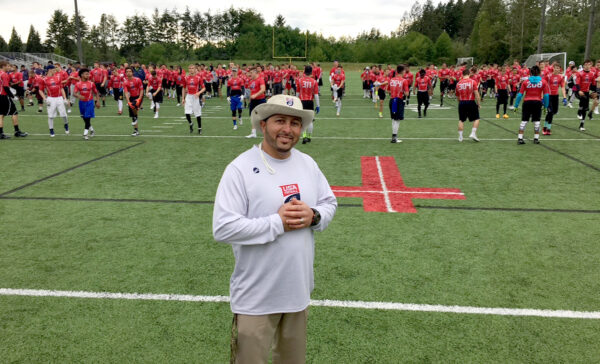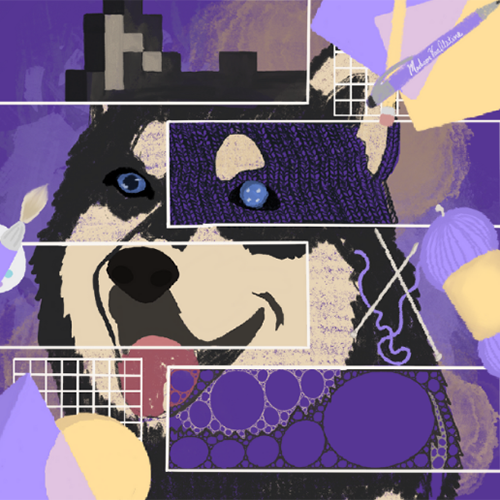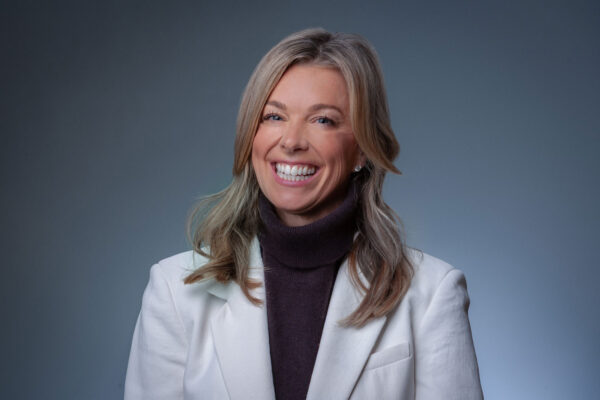More than 350 people from the University of Washington Bothell and the larger community took part in skill-building workshops and networking Friday at the University’s third annual Equity and Inclusion Conference.

Chancellor Wolf Yeigh thanked T-Mobile for its third year of not only sponsoring the conference but also leading some of the conversations.
“The work we get to do today is so important,” Yeigh said. “Our priority at UW Bothell is to create a safe and welcoming educational environment.”’
Terryl Ross, UW Bothell director of diversity, said it was the largest conference yet.
Ron Sims sets the tone in keynote speech
Civic leader and former King County Executive Ron Sims started the conference with a keynote speech that captivated the audience as he shared stories and lessons from his life.
After one of his three sons signed him up as a chaperone on a high school Mount Rainier climb, he learned “everybody counts on a rope team.”
“And that’s true in society as well. We have to count on each other,” Sims said.
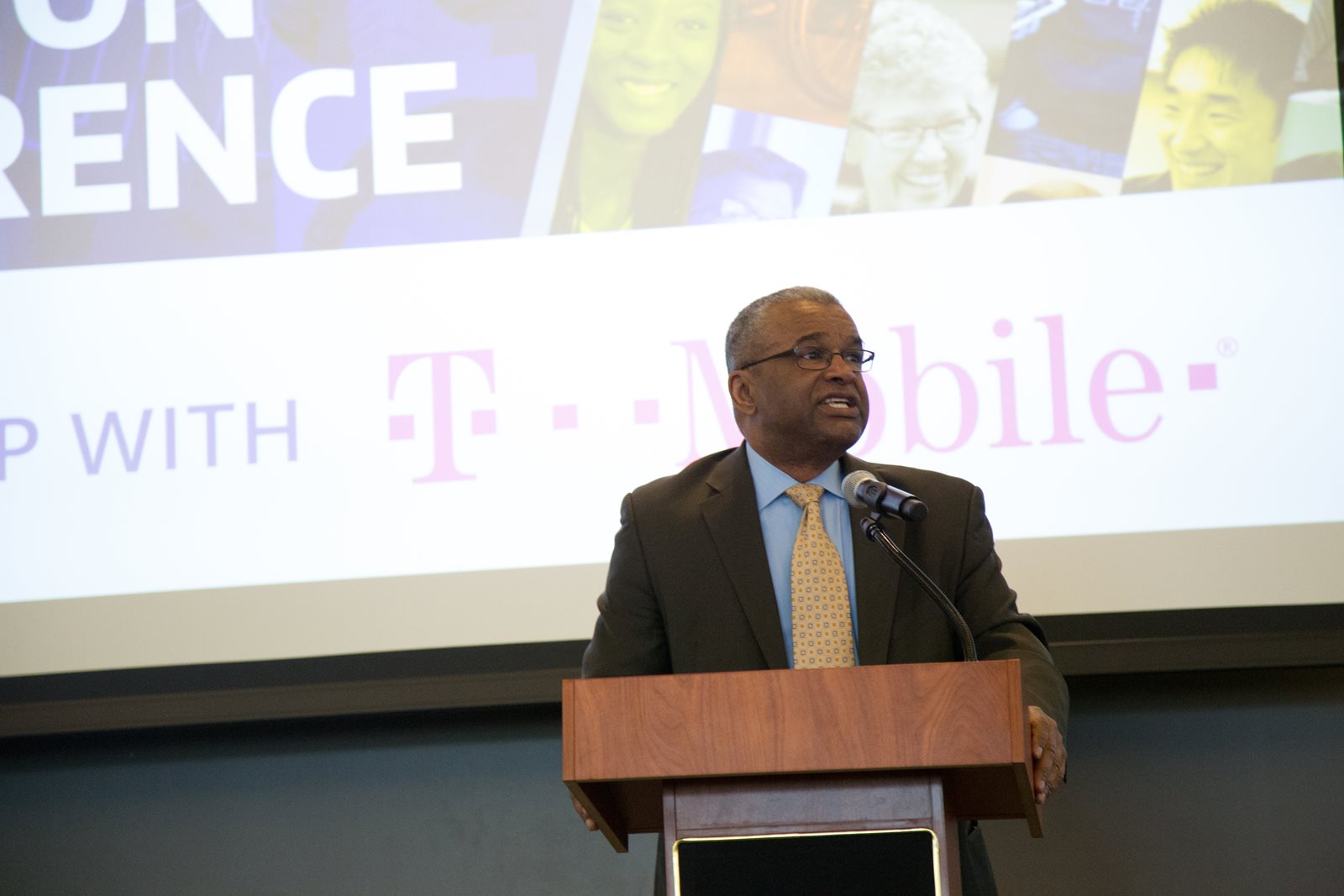
Sims talked about meeting President Obama, who appointed him deputy secretary of the U.S. Department of Housing and Urban Development, and reflected on changing society.
“The greatest threat to America will be how we handle the diversity that is going to occur whether anybody likes it or not,” Sims said. “University communities should be the catalyst of change”
Workshop: Empowering Women in Tech
Representatives of T-Mobile described how the Bellevue-based wireless carrier advances women in technology as part of its diversity and inclusion vision. It pays off in increased job satisfaction, loyalty, engagement, retention, innovation, customer engagement and ultimately profits, they said.
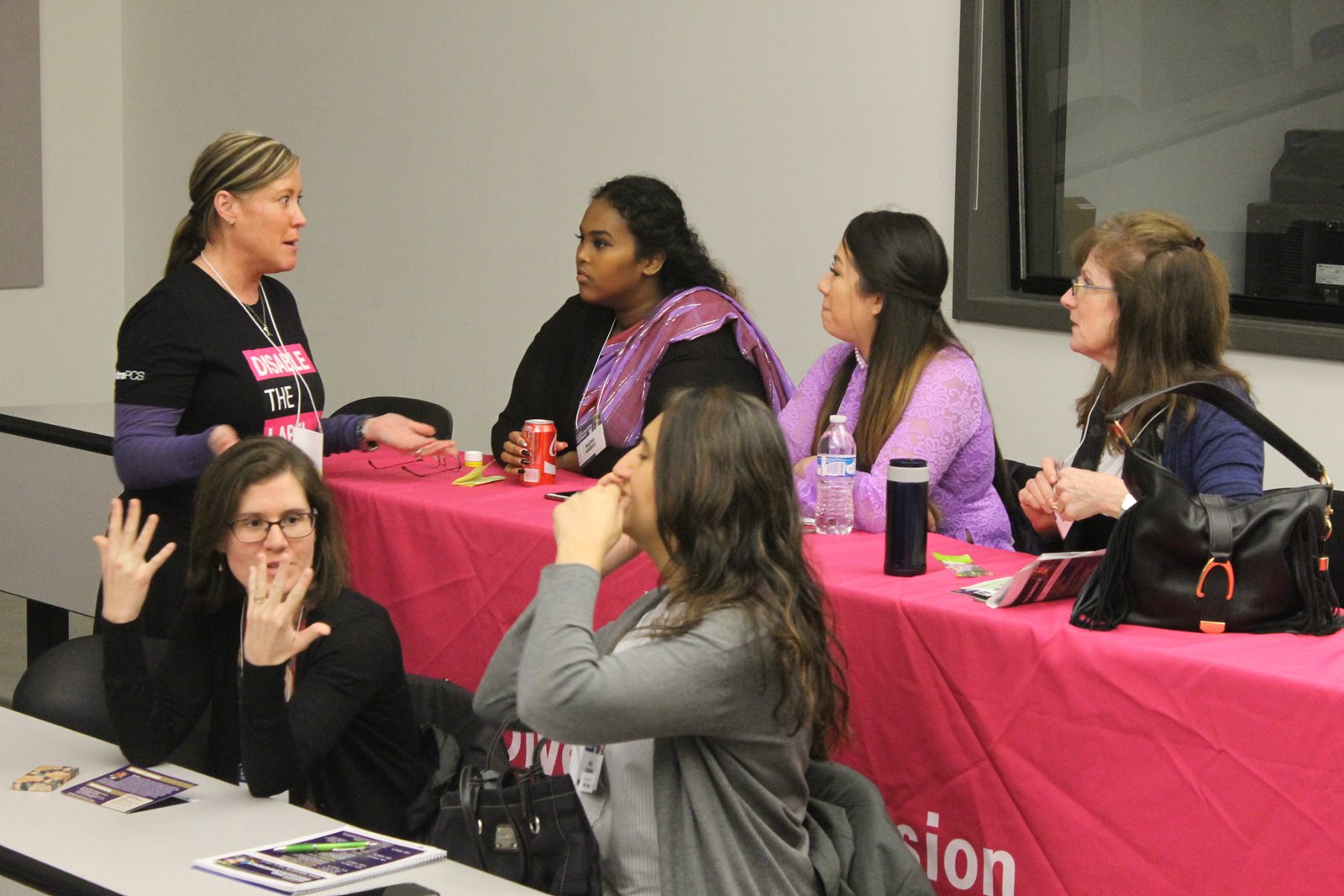
“We want people working at T-Mobile to represent the customers,” said Lauri Bingham, director of technology, project management office.

Having support from upper-level management is vital, said Shelly Washington-Woodruff, senior director IT solution owner, technology.
“When you have support from top down, you can rush through that door,” she said.
Workshop: Indigenous Resistance: From Wounded Knee to Standing Rock
Sisters Colleen and Abigail Echo-Hawk shared stories of the strength and resilience of American Indian and Alaska Native people.

Colleen Echo-Hawk is the executive director of the Chief Seattle Club, a nonprofit serving homeless and low-income urban Native people. Abigail Echo-Hawk is director of the Urban Indian Health Institute, a division of the Seattle Indian Health Board, which supports the well-being of urban Indians through information.
“Native voices have been missing for way too long,” Colleen EchoHawk said.
“The knowledge that lives within the community is just as valid as statistics gathered by me,” Abigail EchoHawk said.
Student Programming for Social Justice: Creating Community and Resiliency through Art
UW Bothell Social Justice Organizers Kim Correa and Naima Shaltu helped participants evaluate the role of art in consciousness-raising and building community across differences. Student leaders in Social Justice Organizers promote a campus culture of respect for diversity.
Workshop: Combating Islamophobia
“Right now there’s so much fear and anxiety,” said Aneelah Afzali, executive director of the American Muslim Empowerment Network, an initiative of the Redmond-based Muslim Association of Puget Sound.

“Hate speech leads to hate crimes,” she said.
One way to promote religious freedom is to get to know co-workers and neighbors who are Muslim and have conversations about faith.
“It’s easy to dehumanize a community that people don’t know,” Afzali said. “Humanization makes a big difference.”
Workshop: Building Transformational Diversity
UW Bothell’s Digital Future Lab is known for developing commercial quality video games while respecting the diverse backgrounds and cultures of the students. Executive Director Jason Pace and Assistant Director Aina Braxton led a certificate training session for human resource and hiring managers.

“It’s a new way to approach diversity within companies,” said Pace. Instead of being reactive or corrective, it’s an approach that says the more diversity, the better.
Create the Change contest

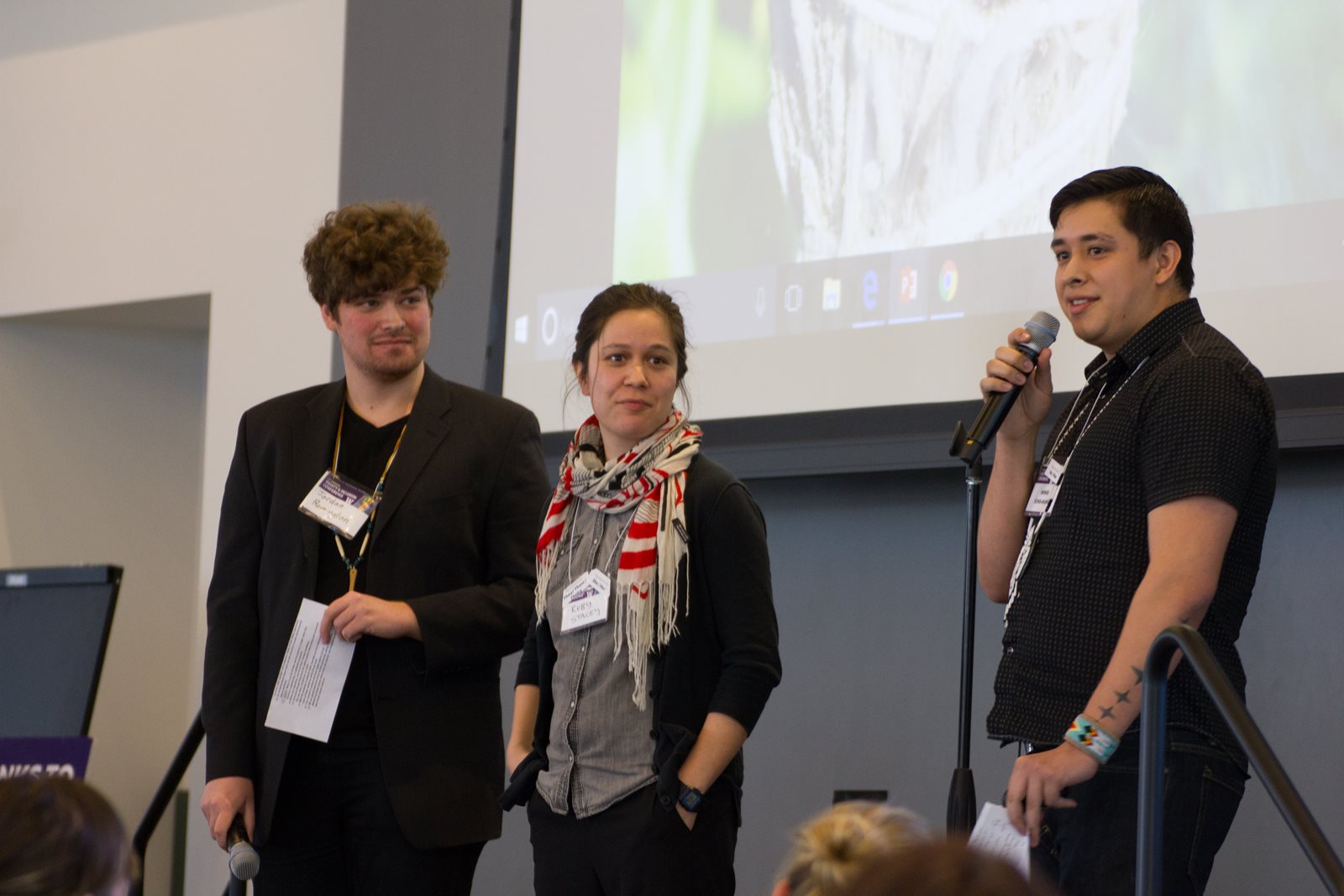
Five student groups competed in the Create the Change contest sponsored by T-Mobile. They presented their ideas to address a diversity issue. All the conference participants voted. The top two groups were so close T-Mobile decided to make them both winners. Each group will receive up to $5,000 and mentorship over the next year to bring the project to fruition.
They are:
- S.A.V.E. – Sexual Assault & Violence Education, (above left) a student-led program of education, advocacy and support of sexual violence victims through compassion and care.
- Western Washington Indigenous Students Summit — (above right) Bringing Native students together to focus on enhancing programs and tools to solve the institutional barriers they face in higher education.
Special Session: The making of “Shoulder to Shoulder” Islamophobia viral video
The conference ended with a panel on the making of “Shoulder to Shoulder” Islamophobia viral video. It was produced by all 43 students in “Arts In Context: Contemporary Muslim Artists,” taught by Anida Yoeu Ali, a faculty member and artist-in-residence in UW Bothell's School of IAS. Since it was made in December, the video has had 350,000 views.
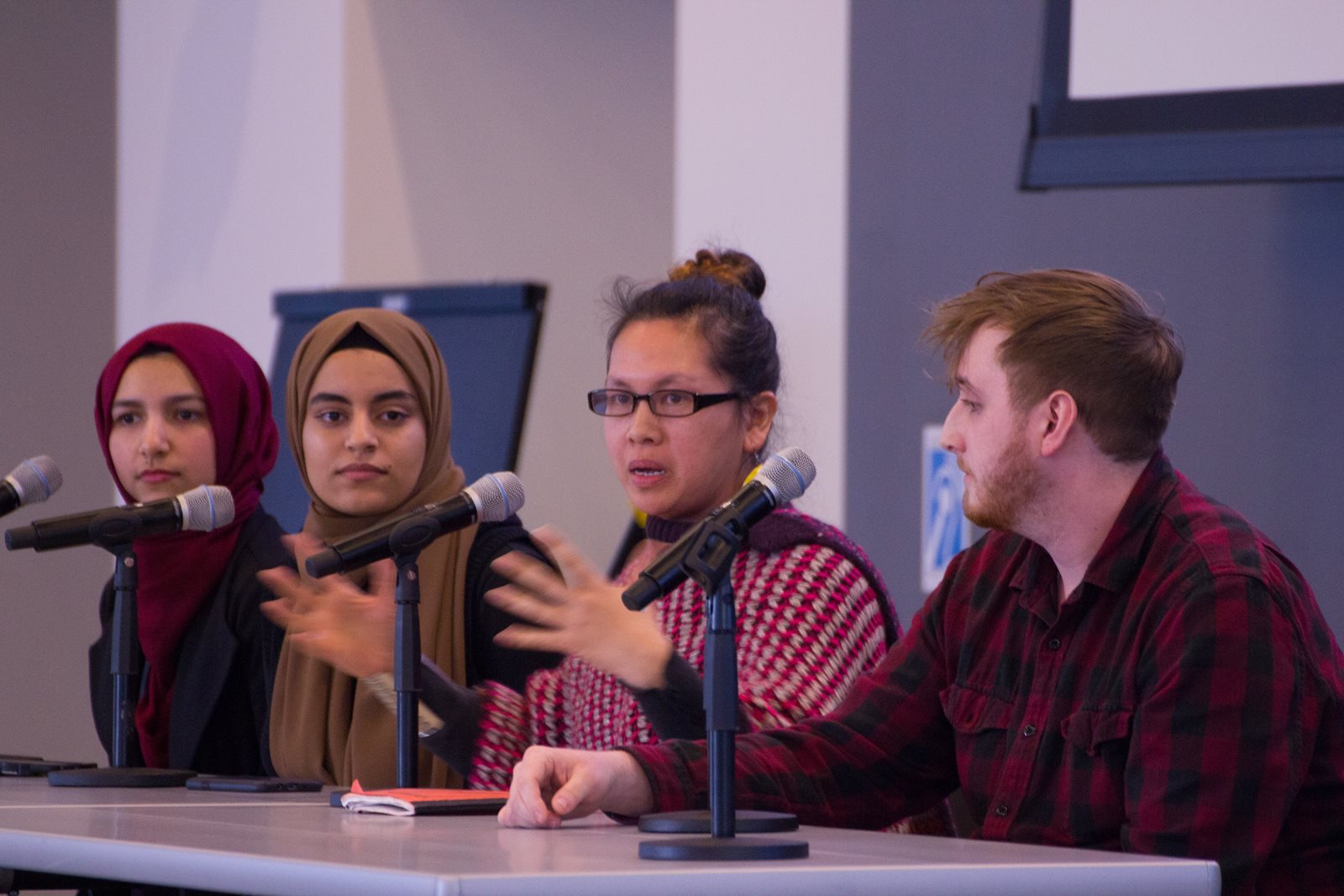
Photos by Marc Studer, Jama Abdirahman, Avi Socha and Nathan Evers. See more photos on Flickr:
https://www.flickr.com/photos/36963841@N06/albums/72157679214391880
